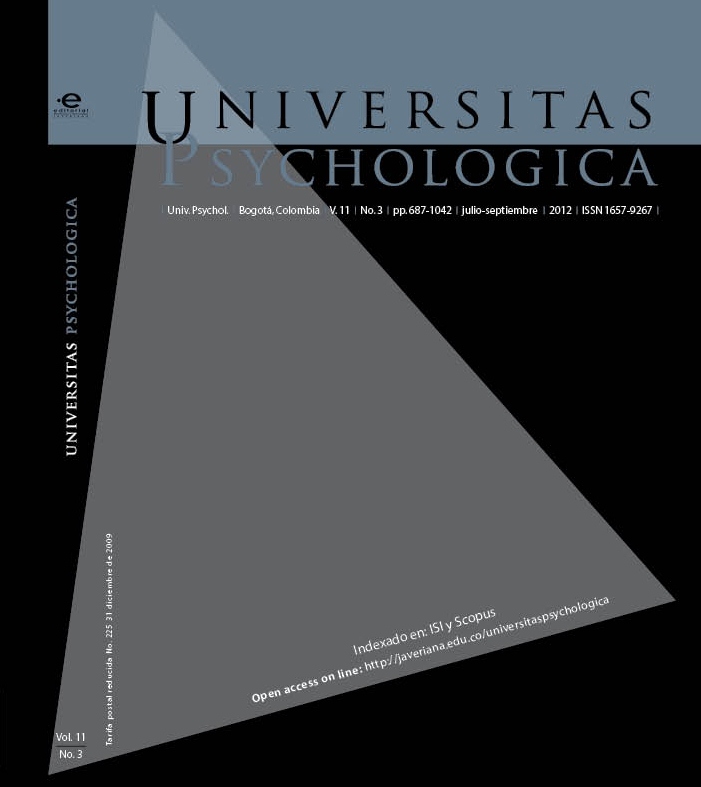Abstract
The aim of this investigation is to evaluate the psychometric properties of the Satisfaction with Life Scale (SWLS), in the adult population from ages 18 to 65. In order to do this two studies were conducted. In the first one, we evaluated the internal consistency and construct validation of data from 330 people between 18 and 52 years of age; in the second study, we evaluated the confirmatory factor and validation of data indicators from 1157 people between 18 and 65 years of age. The results show suitable indicators of internal consistency (Cronbach’s alpha = 0.82), the exploratory and confirmatory factor analysis finds a one factor’s solution. The correlation between the SWLS, the WHOQOL-BREF Quality of Life Questionnaire, and the Difficulties in Emotion Regulation Scale (DERS), display significant, consistent correlations in the expected direction. We conclude that the SWLS is a reliable and valid instrument to use for evaluating the cognitive sphere of subjective well-being in Chile’s adult population.
This journal is registered under a Creative Commons Attribution 4.0 International Public License. Thus, this work may be reproduced, distributed, and publicly shared in digital format, as long as the names of the authors and Pontificia Universidad Javeriana are acknowledged. Others are allowed to quote, adapt, transform, auto-archive, republish, and create based on this material, for any purpose (even commercial ones), provided the authorship is duly acknowledged, a link to the original work is provided, and it is specified if changes have been made. Pontificia Universidad Javeriana does not hold the rights of published works and the authors are solely responsible for the contents of their works; they keep the moral, intellectual, privacy, and publicity rights. Approving the intervention of the work (review, copy-editing, translation, layout) and the following outreach, are granted through an use license and not through an assignment of rights. This means the journal and Pontificia Universidad Javeriana cannot be held responsible for any ethical malpractice by the authors. As a consequence of the protection granted by the use license, the journal is not required to publish recantations or modify information already published, unless the errata stems from the editorial management process. Publishing contents in this journal does not generate royalties for contributors.


